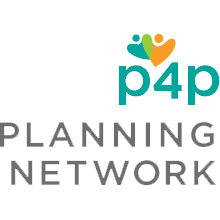
Whose Voice? Real Choice Webcast
Tools and Resources
Whose Voice? Real Choice Webcast
Tools and Resources
Thank you for joining us for the Whose Voice? Real Choice Webcast. Below is a list of actionable tips, links and resources relevant to the topics discussed. We hope you find this information useful.
3 TIPS TO TAKE ACTION AFTER THE WEBCAST
-
Practice decision making by including your family member in making everyday decisions like what to eat for dinner, or what to wear. The earlier they are included in and supported to make those little decisions, the easier it can become to make bigger decisions later down the line.
-
Start with the assumption that everyone has capacity and patiently resist the urge to speak for your family member. Instead, try to listen carefully to all the ways your family member is expressing will and preference, paying special attention to nonverbal cues. Be sure to allow them space and give them good clear information so they can start to confidently make their own decisions.
-
Get a few people together who know your family member well and think about all the ways that they are showing what's important to them, such as what they like and don't like, and what their values are. Every person in your family member’s life is likely to have unique insights about them.
LINKS AND RESOURCES
Durham Association for Family Resources & Support (DFR)
Durham Family Resources works in partnership with families with a member who has an intellectual disability or a child with a physical disability, providing family support (services, resources, and other types of assistance) that enhance the capacity of the whole family to care for one another and to sustain and/or enhance their valued social roles as family members and as members of the community.
DFR’s Recognizing Capacity Project
In 2017, the Law Commission of Ontario recommended pilot projects be developed to explore alternatives to substitute decision making. In response, Durham Family Resources created the Recognizing Capacity Project, seeking to gather further evidence that people with developmental disabilities can maintain their legal capacity and be the decision maker in their own lives, even if they need significant support to do so. The project offers families an opportunity to explore, notice, and articulate important ideas around the decision-making capability of their loved ones.
Action Guide: Understanding Legal Capacity and Supported Decision Making
This P4P Action Guide looks at ways of supporting people to maintain control of their lives. It discusses supported decision making and provides resources. .
The Right to Decide Project
In 2019, Community Living Ontario launched the Right to Decide Project. Partnering with the IRIS Institute and PooranLaw. The project was designed to identify situations in which the legal capacity of people who a disability was challenged and to demonstrate the ways in which Supported Decision Making can overcome these challenges. The Right to Decide site, contains many resources related to supported-decision making..
Supported Decision-making: Why the Right to Make Choices with Support Matters
The Autistic Self Advocacy Network (ASAN) is a national grassroots disability rights organization for the autistic community. This page on their website talks about supported decision making, how it works, and why it matters.


